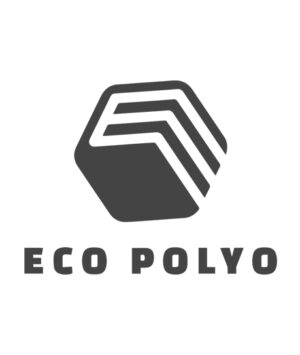DSM Arnitel® EM400 Polyether Ester Elastomer (European and Asian Grade)
| Manufacturer | DSM Engineering Plastics |
| Trade Name | Arnitel® |
| Port | Shanghai port,China |
| Trade Terms | FOB, CFR, CIF |
| Payment Terms | L/C, T/T, Western Union |
Categories Elastomer, TPE, Polyester TPE, Thermoplastic
Description
Material Notes:
Product description: Arnitel® combines the advantages of engineering thermoplastics, being easy to process with excellent mechanical properties, at the same time with the flexibility of rubbers.Arnitel does not require vulcanization. This leads to substantial reductions in part cost. Arnitel can be used over a wide range of temperatures. Arnitel has exceptional fatigue, creep resistance and resistance to oils, greases and many other chemicals.Characteristics of Arnitel:Excellent strength over a wide range of temperaturesExcellent dynamic properties e.g. creep and fatigueHigh heat resistanceExceptional resistance to oils and greasesGood chemical resistanceHigh degree of versatility in processingEasy coloring using masterbatchesSurface quality from high gloss to texturedExcellent heat resistance (long term 165°C)Good electrical insulation propertiesLow moisture absorption, excellent dimensional stabilityEasy flow, fast cooling timesTypical Applications: Automotive: Arnitel® is extensively used in the automotive industry for applications requiring exceptional fatigue resistance and resistance to oil and greases. Examples are: Rack and Pinion Bellows, Constant Velocity Joint Boots (CVJ Boots), Air brake tubings.Arnitel in the Electronic and Consumer Goods Industry: Arnitel® finds enormous potential and is also widely used in consumer electronic companies. Arnitel® is a good choice for low noise gears where their exceptional processability without any defects such as flash, makes it the material solution of choice. Arnitel® is also used in highly demanding applications such as in mobile phone antennas.Arnitel® has exceptional flexibility and can perform or even outperform functions that normally require conventional rubbers. Available in a wide range of hardnesses, Arnitel can replace metals, thermoplastics, leather and rubber, often with a reduction in finished part costs.Information provided by DSM.
| Physical Properties | Metric | English | Comments |
|---|---|---|---|
| Density | 1.11 g/cc | 0.0401 lb/in³ | ISO 1183 |
| Water Absorption | 0.75 % | 0.75 % | Sim. to ISO 62 |
| Moisture Absorption at Equilibrium | 0.30 % | 0.30 % | Humidity Absorption; Sim. to ISO 62 |
| Melt Flow | 22.3 g/10 min
@Load 2.16 kg,
Temperature 190 °C |
22.3 g/10 min
@Load 4.76 lb,
Temperature 374 °F |
ISO 1133 |
| 33.3 g/10 min
@Load 2.16 kg,
Temperature 230 °C |
33.3 g/10 min
@Load 4.76 lb,
Temperature 446 °F |
Calculated from Volume Flow Rate of 30 cm<sup>3</sup>/10min.; ISO 1133 |
| Mechanical Properties | Metric | English | Comments |
|---|---|---|---|
| Hardness, Shore D | 34 | 34 | 3s; ISO 868 |
| Tensile Strength at Break | 25.0 MPa | 3630 psi | ISO 527-1/-2 |
| Tensile Strength, Yield | 2.40 MPa
@Strain 5.00 %
|
348 psi
@Strain 5.00 %
|
ISO 527-1/-2 |
| 3.90 MPa
@Strain 10.0 %
|
566 psi
@Strain 10.0 %
|
ISO 527-1/-2 | |
| 6.90 MPa
@Strain 50.0 %
|
1000 psi
@Strain 50.0 %
|
ISO 527-1/-2 | |
| 7.50 MPa
@Strain 100 %
|
1090 psi
@Strain 100 %
|
ISO 527-1/-2 | |
| Elongation at Break | >= 300 % | >= 300 % | ISO 527-1/-2 |
| Elongation at Yield | 74 % | 74 % | ISO 527-1/-2 |
| Tensile Modulus | 0.0500 GPa | 7.25 ksi | ISO 527-1/-2 |
| Izod Impact, Notched (ISO) | NB
@Temperature -40.0 °C
|
NB
@Temperature -40.0 °F
|
ISO 180/1A |
| NB
@Temperature -20.0 °C
|
NB
@Temperature -4.00 °F
|
ISO 180/1A | |
| NB
@Temperature 23.0 °C
|
NB
@Temperature 73.4 °F
|
ISO 180/1A | |
| Charpy Impact, Notched | NB
@Temperature -30.0 °C
|
NB
@Temperature -22.0 °F
|
ISO 179/1eA |
| NB
@Temperature 23.0 °C
|
NB
@Temperature 73.4 °F
|
ISO 179/1eA | |
| Tensile Impact Strength | 218 kJ/m² | 104 ft-lb/in² | notched, 23°C; ISO 8256/1 |
| Graves Tear Strength | 60.0 kN/m | 342 pli | without nick; ISO 34 |
| Thermal Properties | Metric | English | Comments |
|---|---|---|---|
| CTE, linear, Parallel to Flow | 220 µm/m-°C
@Temperature 20.0 °C
|
122 µin/in-°F
@Temperature 68.0 °F
|
ISO 11359-1/-2 |
| CTE, linear, Transverse to Flow | 220 µm/m-°C
@Temperature 20.0 °C
|
122 µin/in-°F
@Temperature 68.0 °F
|
ISO 11359-1/-2 |
| Melting Point | 195 °C | 383 °F | 10°C/min; ISO 11357-1/-3 |
| Vicat Softening Point | 140 °C | 284 °F | 50°C/h 10N; ISO 306 |
| Glass Transition Temp, Tg | -78.0 °C | -108 °F | Glass Transition Temperature (10°C/min); ISO 11357-1/-2 |
| Flammability, UL94 | HB
@Thickness 1.60 mm
|
HB
@Thickness 0.0630 in
|
IEC 60695-11-10 |
| Electrical Properties | Metric | English | Comments |
|---|---|---|---|
| Volume Resistivity | 1.00e+15 ohm-cm | 1.00e+15 ohm-cm | IEC 60093 |
| Surface Resistance | >= 1.00e+15 ohm | >= 1.00e+15 ohm | IEC 60093 |
| Dielectric Constant | 4.0
@Frequency 1e+6 Hz
|
4.0
@Frequency 1e+6 Hz
|
IEC 60250 |
| 4.1
@Frequency 100 Hz
|
4.1
@Frequency 100 Hz
|
IEC 60250 | |
| Dielectric Strength | 20.0 kV/mm | 508 kV/in | IEC 60243-1 |
| Dissipation Factor | 0.0010
@Frequency 100 Hz
|
0.0010
@Frequency 100 Hz
|
IEC 60250 |
| 0.017
@Frequency 1e+6 Hz
|
0.017
@Frequency 1e+6 Hz
|
IEC 60250 | |
| Comparative Tracking Index | 600 V | 600 V | IEC 60112 |
| Descriptive Properties | Value | Comments |
|---|---|---|
| High impact or impact modified | Yes | |
| Injection molding | Yes | |
| Without Fillers | Yes |



